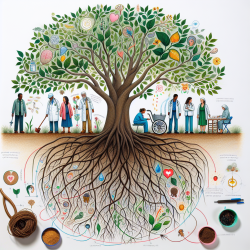The development of the Police Practices Scale (PPS) offers a groundbreaking approach for practitioners aiming to understand and improve policing practices towards street-based female sex workers (FSW) in urban settings. This research, conducted in Baltimore, Maryland, highlights the critical role of law enforcement interactions in shaping the health and safety of vulnerable populations. By examining these interactions through a structured scale, practitioners can gain insights into the broader impact of routine policing on public health outcomes.
The Importance of the Police Practices Scale
The PPS was developed to measure police patrol practices among FSWs, focusing on their frequency and nature over recent months. The scale emerged from an extensive study involving 250 street-based FSWs and was designed to capture both law enforcement and police assistance practices. This dual-factor model allows practitioners to differentiate between harmful enforcement tactics and supportive community policing efforts.
The research findings indicate that higher exposure to policing is associated with increased vulnerability among FSWs, particularly those who are homeless or engaged in daily sex work. These insights underscore the need for targeted interventions that address the structural determinants of risk within these communities.
Implementing Research Findings in Practice
- Utilize the PPS: Practitioners can adopt the PPS as a tool to evaluate current policing practices within their jurisdictions. By identifying patterns and frequencies of police interactions, they can develop strategies to mitigate negative impacts on vulnerable populations.
- Promote Community Policing: Encouraging a shift towards community policing practices can foster trust and cooperation between law enforcement and marginalized groups. This approach has been shown to improve public health outcomes by aligning police efforts with harm reduction objectives.
- Advocate for Policy Change: Use the evidence provided by the PPS to advocate for policy reforms that decriminalize sex work and support harm reduction initiatives. These changes can reduce the structural violence experienced by FSWs and improve their access to essential services.
- Pursue Further Research: The initial validation of the PPS suggests its potential for broader application across different populations and settings. Practitioners are encouraged to participate in further research efforts to refine and validate this tool, ensuring its efficacy in diverse contexts.
A Call to Action for Practitioners
The development of the Police Practices Scale represents a significant advancement in understanding the intersection of policing and public health. By leveraging this tool, practitioners can play a pivotal role in transforming law enforcement practices to better serve vulnerable communities. As we continue to explore the implications of routine police encounters on health outcomes, it is imperative that we remain committed to evidence-based interventions that prioritize human rights and public safety.










